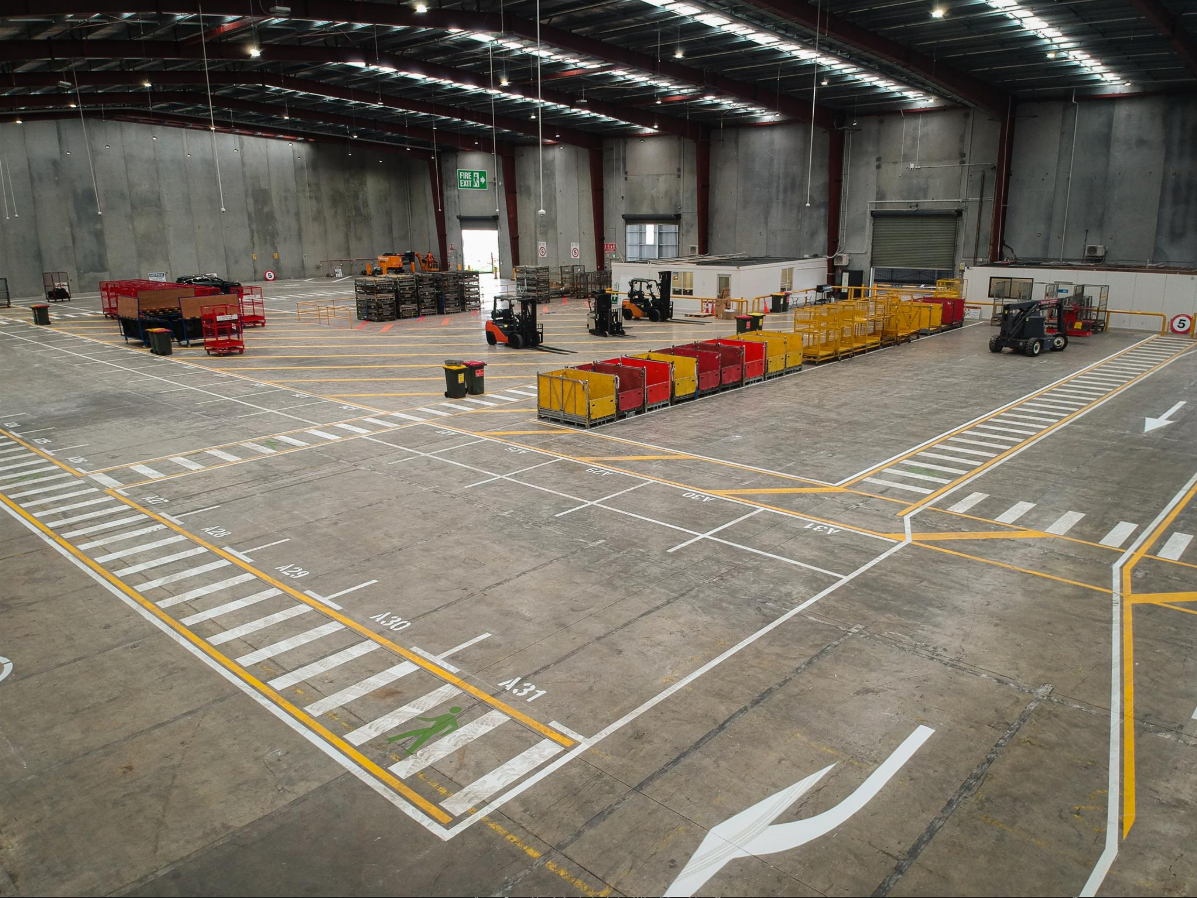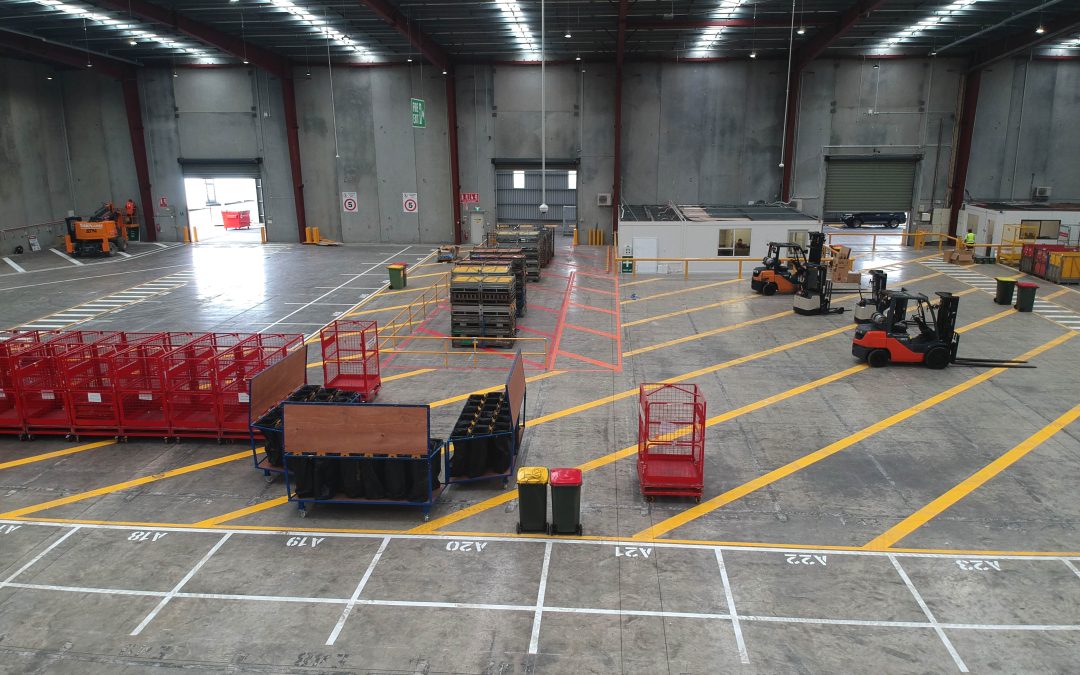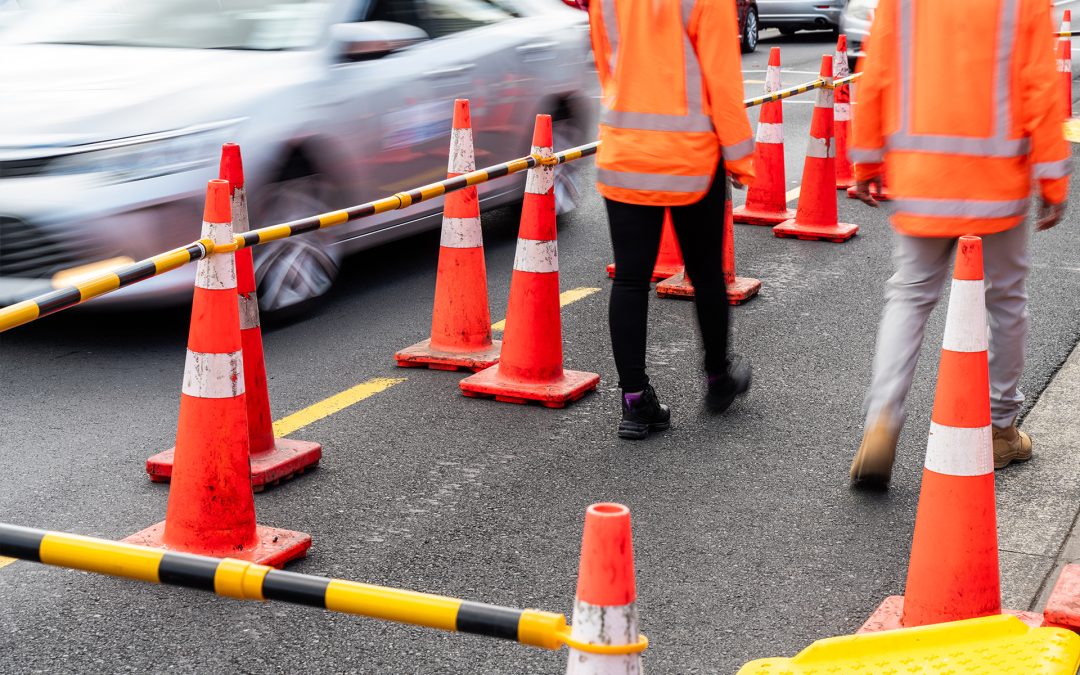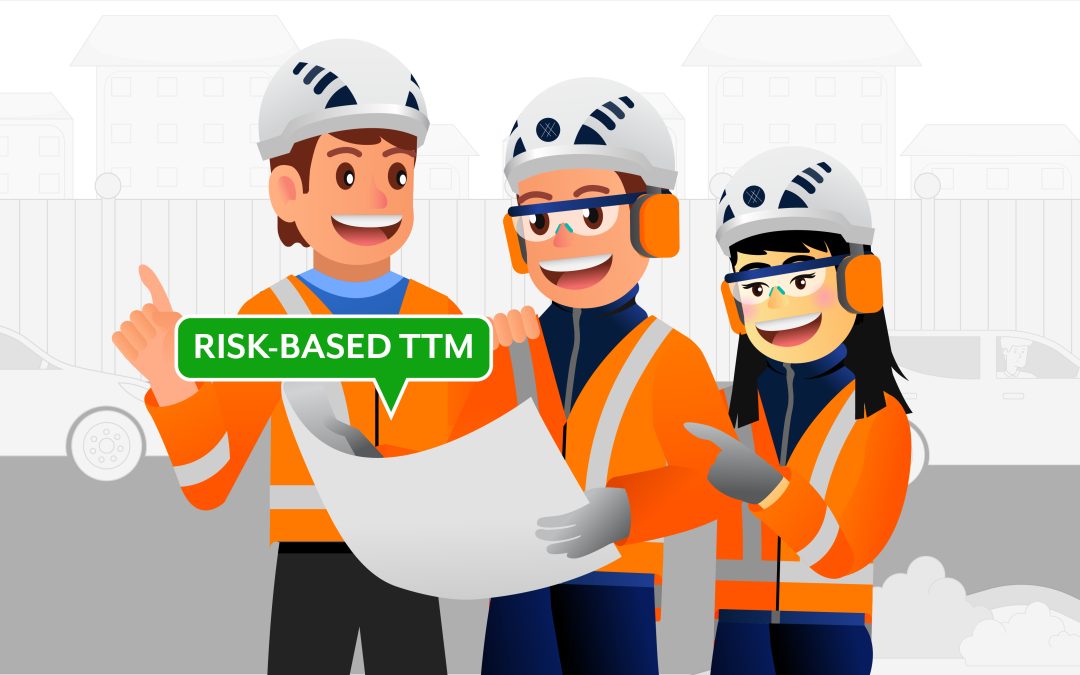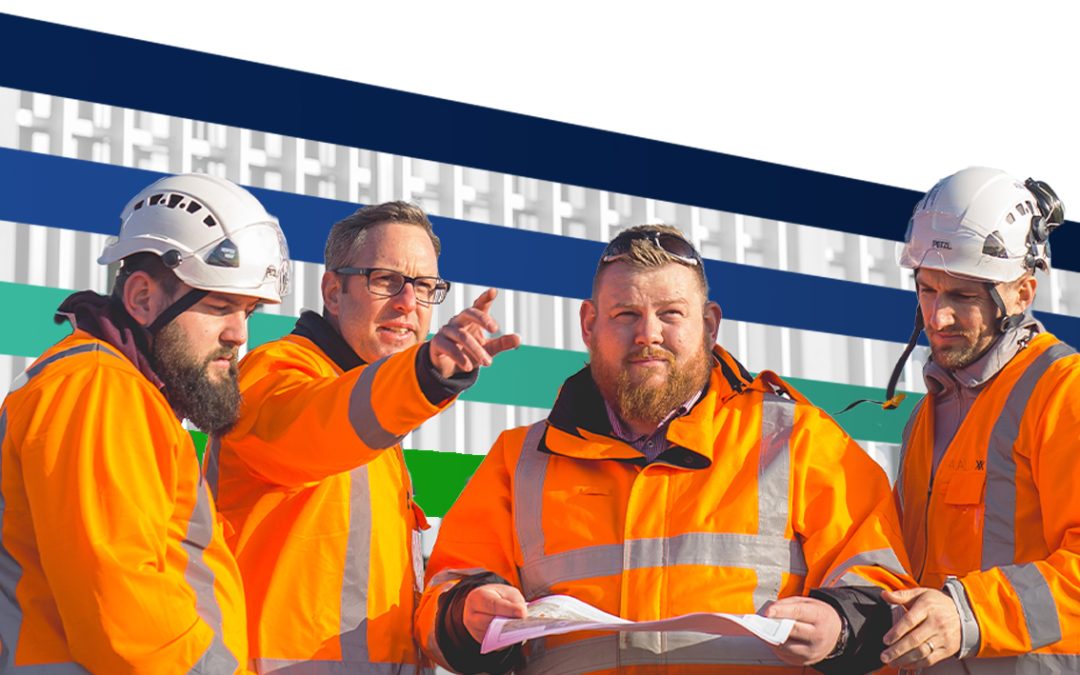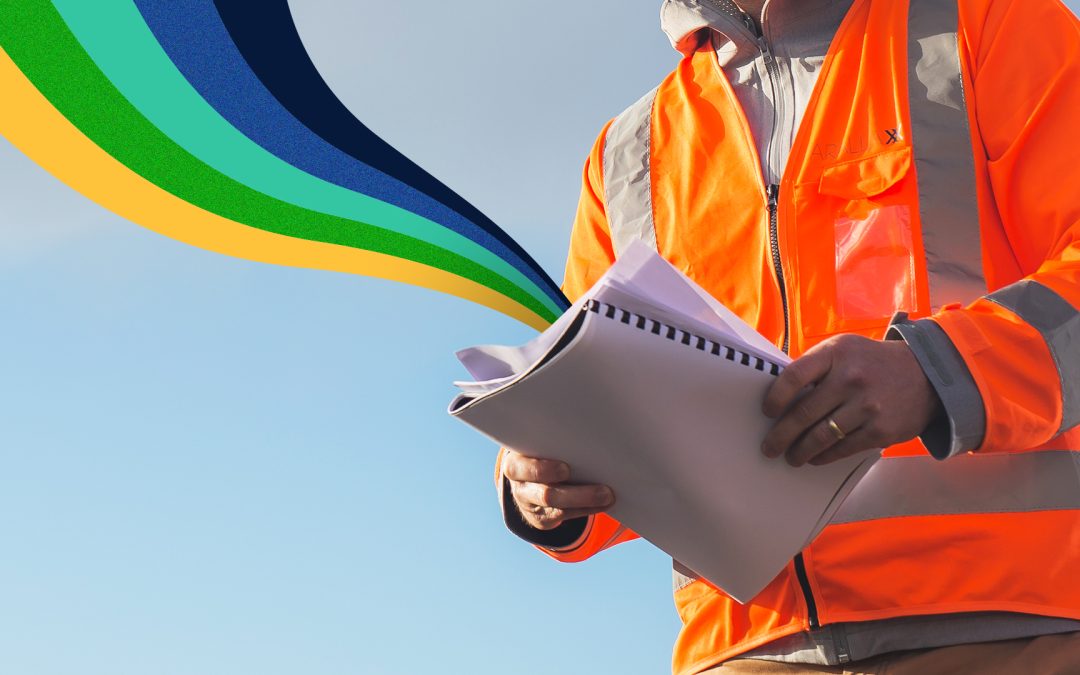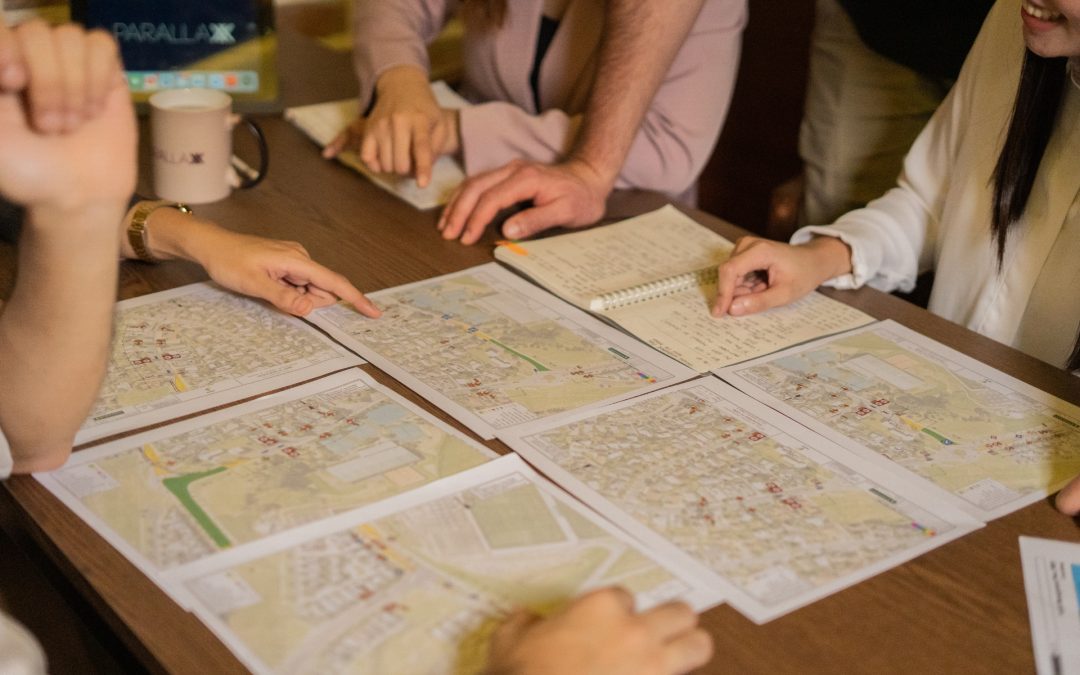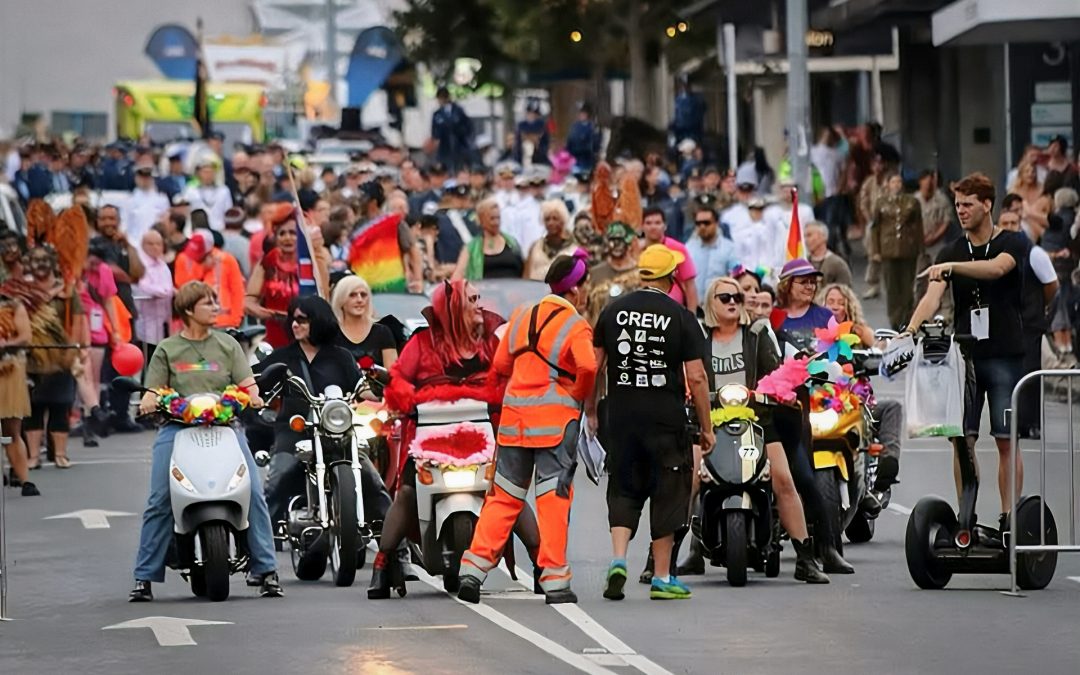Here’s why you need a VMP. Imagine the day-to-day operations of companies that deal with inward and outward goods, freight companies, big trade chains such as Mitre10, Bunnings and the Warehouse, for example – or even big farming companies. These large static sites are not only used for storage and management of product, but also for parking of staff and customers. That’s a lot of moving parts. With large static worksites such as these, some key safety questions come to mind:
- – What types of traffic do you have on your site?
- – How do you manage the different types of traffic and their interactions?
- – Do pedestrians, staff or customers have safe access to the places they need to get to?
- – How do you manage the interactions between traffic and pedestrians?
- – Do drivers/operators and pedestrians know what to do when on your site?
This is where a VMP (Vehicle Management Plan) comes into play. A VMP looks at all aspects of traffic and pedestrian management on the premises. It will analyse the different types of traffic and how it interacts with the different operations on site. For instance, what areas are shared by delivery vehicles and forklifts? Are staff on foot needed for this operation? What systems are in place to manage the safety of each individual? A VMP will also look at any historical data – has there been a Lost Time Injury attributed to this operation? Do you often have near misses?
This site analysis is the first step of the VMP process. The information is then reviewed and initial comments and recommendations are made. With common sense in mind, the next step is to see if design changes to the layout of an area can improve the safety of the operation. In essence, this step is formulating a kind of ‘Road Code’ where use of an area is specified and safe pedestrian spaces are provided through colour coded line markings. Additional safety signage may be used to emphasis the line markings, and installation of physical hardware such as barriers and gates could also be recommended. During the design process a risk assessment document is also compiled showing how we have arrived at our recommendations.
So do I need a VMP? The changes to the Health and Safety at Work Act in 2015 put greater responsibility on companies to ensure that their place of work was safe – no matter the industry. These days a company’s H&S policy is more important than ever before – an inability to provide sufficient evidence that the correct systems and processes are in place, and that staff are aware and trained, results in a notice of non-compliance. This leaves companies scrambling to overhaul their H&S policy within a short period of time resulting in unwanted cost and reputational damage.
From the point of view of traffic management, we saw a lot of major changes in how construction was carried out and this in turn meant that our traffic management planning had to evolve to match the higher safety requirements of the construction industry.
Here at Parallaxx, we’re governed by the Health and Safety at Work Act – the elements of this legislation are what we come back to with every decision. To help give us answers and industry best practice on the specific controls we could implement in a Vehicle management plan, we utilise the following:
- – The Code of Practice for Temporary Traffic Management (CoPTTM)
- – The Austroads set of guides
- – The Manual of Traffic Signs and Markings (MoTSAM)
We also use the hierarchy of controls to adequately consider the hazard and what can be done about it in a consistent manner. It is important to start by trying to eliminate the hazard in the first instance, if that is not feasible, only then do we work through other options to mitigate the hazard.
Throughout the design process, we work closely with the client to ensure that, while trying to make things safer for the company, its staff and customers, the common-sense approach helps to maintain the efficiency of their operations.
So, in terms of traffic and pedestrian management, do you think your workplace could be safer? A VMP could be just the tool to achieve that. Give Parallaxx a call and we’ll see where we can help.
